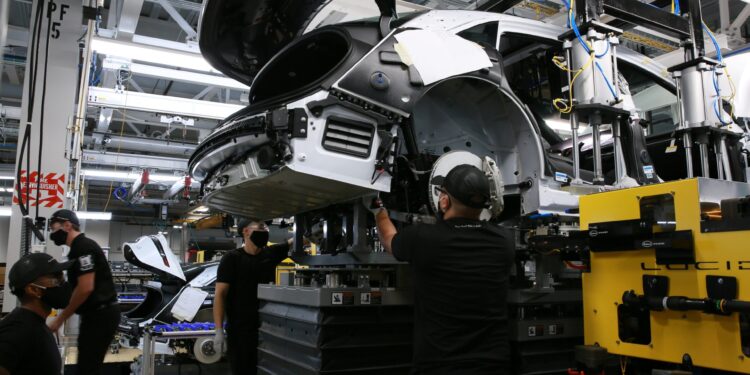How Effective Middle Management Drives Productivity And Improves Employee Retention

Table of Contents
The Impact of Effective Middle Management on Productivity
Effective middle management is the engine that drives productivity. It's not just about assigning tasks; it's about fostering a collaborative environment where teams thrive and individuals excel.
Fostering a Culture of Collaboration and Communication
Collaborative middle management understands the power of open communication. They actively build strong teams by creating channels for seamless information flow and feedback. This fosters a sense of unity and shared purpose, leading to increased team productivity.
- Open communication channels: Regular team meetings, accessible communication platforms (Slack, Microsoft Teams), and open-door policies.
- Regular feedback sessions: Constructive criticism and praise help individuals grow and improve their performance. Regular one-on-ones provide opportunities for personalized feedback and addressing concerns.
- Team-building activities: Enhancing camaraderie and trust through social events and collaborative projects improves teamwork and efficiency.
- Effective delegation: Assigning tasks based on individual strengths ensures optimal resource utilization and motivates employees.
- Transparent goal-setting: Clearly defined goals and objectives, shared with the entire team, promote a sense of shared responsibility and accountability, contributing to higher collaborative middle management effectiveness.
These communication strategies are fundamental to achieving high team productivity.
Efficient Resource Allocation and Task Management
Effective middle managers are masters of resource management. They understand how to prioritize tasks, optimize workflows, and delegate responsibilities effectively. This leads to improved efficiency and increased output.
- Prioritization techniques: Utilizing methods like Eisenhower Matrix (urgent/important) to focus on high-impact tasks first.
- Project management skills: Employing tools and techniques to manage projects effectively, ensuring timely completion and quality deliverables.
- Efficient workflow design: Streamlining processes to minimize bottlenecks and improve the overall flow of work.
- Delegation of tasks based on strengths: Matching individual skills and talents to appropriate tasks maximizes efficiency and employee satisfaction.
These productivity improvement strategies are crucial for optimizing resource management and boosting overall output.
Driving Innovation and Problem-Solving
Effective middle managers foster a culture of innovation by empowering their teams and encouraging creative problem-solving. They provide the resources and support needed for employees to develop and implement innovative solutions.
- Empowering employees: Giving team members the autonomy to take ownership of their work and make decisions fosters a sense of responsibility and innovation.
- Fostering a culture of innovation: Encouraging experimentation, brainstorming sessions, and open discussion of new ideas.
- Providing resources for professional development: Offering training, mentorship, and opportunities for skill enhancement boosts individual and team innovation.
- Celebrating successes: Acknowledging and rewarding achievements boosts morale and motivates continued innovation.
This innovative management style cultivates a dynamic and problem-solving-oriented team.
How Effective Middle Management Improves Employee Retention
Effective middle management plays a crucial role in improving employee retention. It's about building strong relationships, fostering a positive work environment, and providing opportunities for growth and development.
Building Strong Employee Relationships
Middle managers who invest in their employees build trust and loyalty, leading to higher retention rates. This involves mentoring, providing support, and showing genuine care for their team members.
- Regular one-on-one meetings: Providing a platform for open dialogue, feedback, and addressing individual concerns.
- Providing constructive feedback: Offering regular and specific feedback helps employees improve their performance and feel valued.
- Offering career development opportunities: Supporting employee growth through training, mentorship, and promotion opportunities demonstrates investment in their future.
- Showing genuine care and concern: Demonstrating empathy and understanding builds trust and fosters strong working relationships.
These employee engagement strategies are essential for building strong working relationships and fostering a sense of loyalty.
Creating a Positive and Supportive Work Environment
A positive work culture, significantly influenced by middle management style, is a powerful retention tool. It’s about promoting work-life balance, recognizing achievements, and addressing conflicts effectively.
- Promoting work-life balance: Encouraging employees to disconnect after work hours and utilizing flexible work arrangements when possible.
- Recognizing achievements: Acknowledging individual and team contributions, both big and small, builds morale and fosters loyalty.
- Addressing workplace conflict effectively: Providing mediation and support to resolve conflicts promptly and fairly.
- Creating a fair and inclusive environment: Ensuring equitable treatment and opportunities for all team members.
These employee satisfaction initiatives contribute to a positive work culture and increased employee retention.
Providing Opportunities for Growth and Development
Providing opportunities for career advancement is crucial for talent retention. Effective middle managers actively support their employees' professional growth by offering mentorship, training, and clear career paths.
- Mentorship programs: Pairing experienced employees with newer ones for guidance and support.
- Training and development opportunities: Offering workshops, online courses, and other learning opportunities to enhance skills.
- Clear career paths: Providing clear pathways for advancement within the organization, including promotion criteria.
- Regular performance reviews with actionable feedback: Providing constructive criticism and setting clear goals for future performance.
These employee development strategies are vital for talent retention and ensuring career advancement.
Conclusion
In conclusion, effective middle management is undeniably crucial for both boosting productivity and improving employee retention. These two aspects are intrinsically linked; a productive workforce is often a more satisfied and engaged workforce, leading to improved retention. Strengthening middle management through effective management training and improving middle management practices will yield significant returns. Invest in developing your middle managers by implementing leadership training programs, conducting regular employee satisfaction surveys, and fostering a culture of open communication and collaboration. By focusing on these key areas, you can build a high-performing organization with engaged employees and sustainable growth.

Featured Posts
-
 Jan 6th Falsehoods Allegation Ray Epps Sues Fox News For Defamation
May 10, 2025
Jan 6th Falsehoods Allegation Ray Epps Sues Fox News For Defamation
May 10, 2025 -
 Trumps Trade War A 10 Tariff Baseline And The Search For Exceptions
May 10, 2025
Trumps Trade War A 10 Tariff Baseline And The Search For Exceptions
May 10, 2025 -
 Two Men Convicted For Destroying Sycamore Gap Tree
May 10, 2025
Two Men Convicted For Destroying Sycamore Gap Tree
May 10, 2025 -
 Analyzing The Challenges Faced By Bmw And Porsche In The Chinese Market
May 10, 2025
Analyzing The Challenges Faced By Bmw And Porsche In The Chinese Market
May 10, 2025 -
 U S Federal Reserve Rate Decision And The Mounting Economic Challenges
May 10, 2025
U S Federal Reserve Rate Decision And The Mounting Economic Challenges
May 10, 2025
